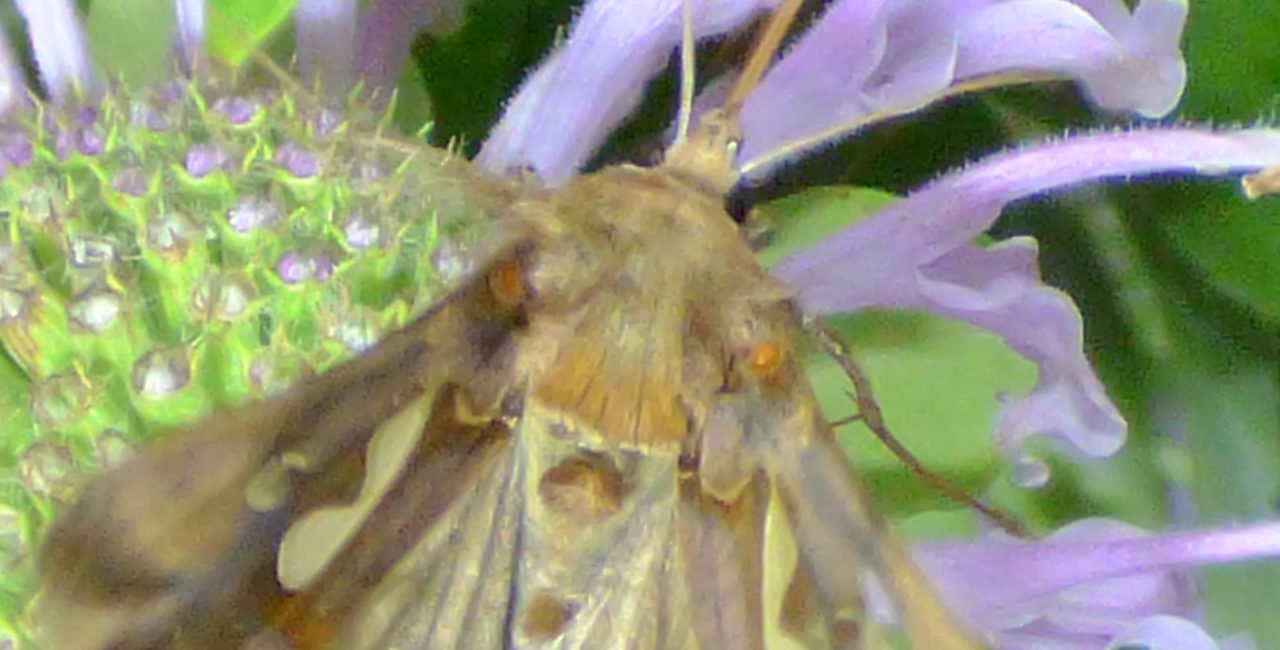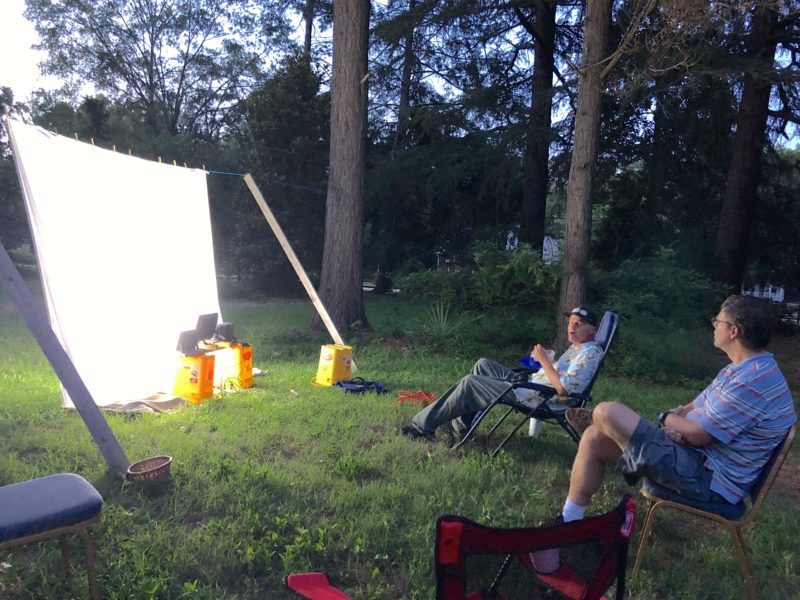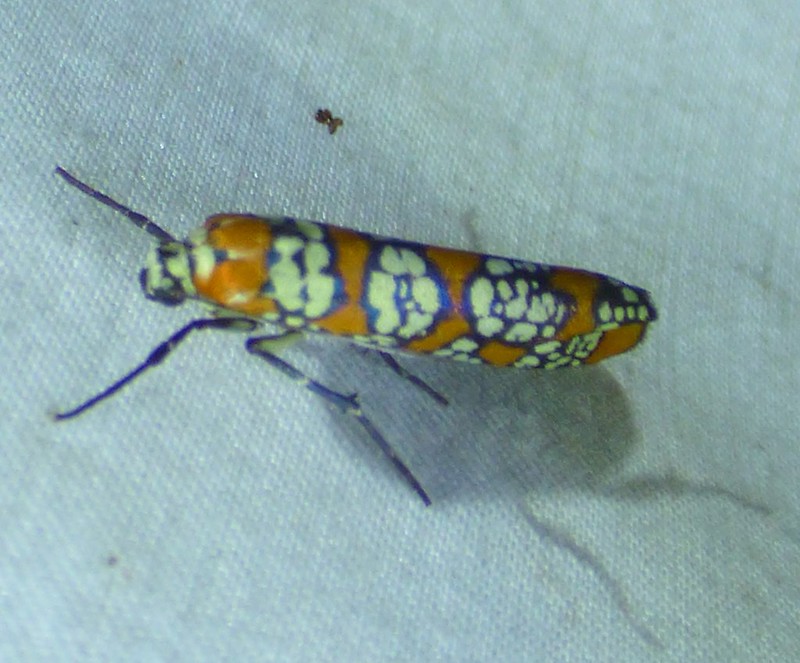
‘Moths of South Carolina’ project comes to Erskine’s Pressly Garden

The Pressly Family Heritage Garden on the Erskine campus became a prime attraction for moths on the evening of July 15, just in time for National Moth Week. Ken Carman, working on his “Moths of South Carolina” project, set up a white sheet and lights in the garden to attract and photograph the moths.
Carman says his work will “provide new records for the SC State Moth Database, located on the Furman University server” and will “help to provide a baseline of data on moth species diversity throughout the state.” Carman chose to complete field work in Due West since it is located in Abbeville County, which has fewer moth records than many counties in South Carolina.
During his evening in the Pressly Garden, Carman was accompanied by Professor Emerita of Biology Dr. Janice Haldeman, who oversees the garden and arranged his visit to Erskine. “It was good to make such fine use of Erskine’s Pressly Garden, especially since our children’s Discovery Garden Camp had to be furloughed this summer because of the pandemic,” she said. “And for me, the real live-and-learn experience was our introduction to the tiny moth world and moths’ importance as environmental health indicators.”
Joining Carman and Haldeman in the garden were Associate Professor of Biology Dr. Matthew Campbell, Campbell’s daughter Sarah, and Haldeman’s husband, retired Erskine Public Relations Director Richard Haldeman. Carman provided an interesting demonstration for his small, socially distanced audience.
“Ken showed us how he photographs moths and beetles, most so small they appear as dots and specks on the lighted sheet,” Haldeman said. “When magnified by a macro lens, the moths’ beautiful intricate patterns and colors are revealed. It’s a magical minuscule world of moths!”
After completing his field research in Due West, Carman took his photographs to Furman, where he is still working on his findings. “We have some really good numbers,” he says, “and as a reward to me, quite a few new species that I have not previously observed or photographed.”
Carman plans to visit one of Campbell’s biology classes early in the fall semester.

